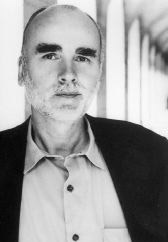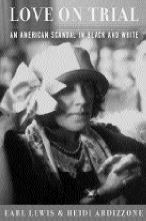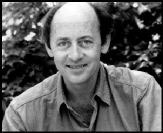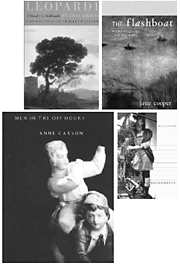Seattle’s second annual poetry series, cosponsored by Seattle Arts & Lectures, ACT, and Open Books: A Poetry Emporium, will again present some of the world’s finest poets reading from their work and talking in an intimate theater-in-the-round setting with Seattle Arts & Lectures executive director Matthew Brogan. Interviews and published commentaries by these authors indicate that the conversations should be nearly as fascinating as the poems.
Poetry Reading Series
January 29, February 28, March 13, and March 27 at ACT
Pulitzer winner C.K. Williams opens the series on January 29 with the urban vignettes and colloquial meditations that have become his poetic signature—disquieting scenes and brief encounters with strangers including, sometimes, himself. Though he concedes that his newest collection, Repair (Farrar, Straus & Giroux), has “more poems in it [about] reconciliation and acceptance than in most of my books,” what most attracts him is dark, knotty material—tough “problems . . . strong emotions and unusual perceptions” that can’t be reasoned away. In spite of himself, Williams gravitates toward the awkward, the sordid, and the wounded, and he doesn’t drop his gaze.
His insistent scrutiny evokes more than pity for the child scarred by burns or contempt for the creep talking dirty to a frightened girl in the subway. The reader experiences a half-reluctant, half-magnetic fellow feeling, a guilty sense of fuller membership in the human circle. Part of Williams’ power comes from supple lines that both draw us in and brace us. Poetic form, he says, “redeems the inadequacies of ordinary life, its incompletions and dissatisfaction,” and his own forms redeem his troubled observations by holding them steady. The muscular Williams line carries the almost visceral message that we, too, can face and contain life’s urgencies and nightmares.
February 28 will feature Adam Zagajewski, the leading Polish poet of his generation, a former political activist who joined other writers in opposition to the Communist regime in his homeland at mid-century and who now lives in Paris and Houston. The lyrical delight that fills his books, especially his recent Mysticism for Beginners (Farrar, Straus & Giroux), may surprise readers who know his background. But Zagajewski says he wants his poems to capture a world viewed with wonder, with “astonishment, illumination, a sense of proximity to what cannot be put into words.” He writes about rain, a spider, a stubbled field, a boat, a museum Vermeer, a window—each perception tinged with history and memory.
For Zagajewski the past is very present in everyday things, but his poems are buoyant and fresh, like first impressions jotted by a keen-eyed traveler. Whether he enters a medieval church or Amsterdam’s airport, watches crows “pace the fields,/looking like Spanish widows,” or muses in a Texas dusk, the poet quietly attends to life’s colors as his thoughts drift outward, loop back, and fall perfectly in place. These are poems born of generous affection. As their author says, “Art springs from the most profound admiration for the world.”
On March 13 two celebrated talents in America’s newest generation of poets will appear together. Matthew Rohrer, in his award-winning A Hummock in the Malookas (W.W. Norton), offers mischievous, surreal meditations on postmodern life. In these poems “dirt is spotless,” “the bridge crawls into town to drink at night,” and over yonder a couple makes love, the man spreading his arms for flight while his sweetheart recites “the captions of famous paintings.” Rohrer deconstructs familiar images and stories, only to build from the splintered phrases weird metropolises full of birds, children, cribbage players, and Mexican short-wave radios. He believes we learn, he says, “real lessons from the . . . fantastical.” His fragments of dissonance and bliss, of death and dissolution, teach the reader’s senses to effervesce.
On the other hand, Jamaica-born Claudia Rankine wants to write the wholly real. A poet’s work, she says, is to recover “all that has been broken off” from life in trying to create illusions of coherence. Her highly praised The End of the Alphabet (Grove Press) is a drama of divided consciousness: “Jane” dives into nameless anguish and resurfaces to mutter dark self-instructions that are answered in another voice, inquisitorial and stern, invading the page like the return of the repressed. Rhapsodies circle on themselves in astonishments of feeling, and memory zigzags through puns, ditties, scenes of lust. A narrative seems to underpin Rankine’s book: A fractured love story? Body chastised by soul? The anatomy of a murder, or abortion’s aftermath? Never mind. “Come out/of the rain-pickle” and hear these amazing poems.
The series culminates on March 27 with Louise Gluck, one of the most important poets writing in America today. Her coolly brilliant lyrics of love, self-deception, art, and time, collected most recently in her book Vita Nova (Ecco), have won many awards, including a 1993 Pulitzer for The Wild Iris. Glck describes her work as “autobiography and comment, the metronomic alternation of anecdote and response,” but she’s no confessional poet in the usual sense of the term. What sets her poems apart are their luminous, pure, stripped-down lines expressing a quality she praises in Keats: “a rare capacity for inward listening.”
The quietly ruthless personal honesty that distinguishes Glck’s art began developing, she says, in psychoanalysis. “Analysis taught me to think . . . taught me to use doubt, to examine my own speech for its evasions and excisions.” She learned that “whatever truth is, to speak it is a great adventure,” for truthfulness requires staying open to experience, letting the nerves be rasped and frayed instead of reaching for self-soothing conclusions. A poet, she says, needs to have lived enough to know that “life is meaner and smarter than you are, and also sweeter. If you’re going to have anything new to say, you have to be the victim of experience for a while, not simply the master of it.” Glck’s strenuous skepticism is laced with tenderness, her sense of humor is a joy, and her craft is miraculous.
The four poetry evenings will all be held at ACT, 700 Union, at 7:30pm. Series tickets are $45 from Seattle Arts & Lectures, 621-2230 or www.lectures.org.








